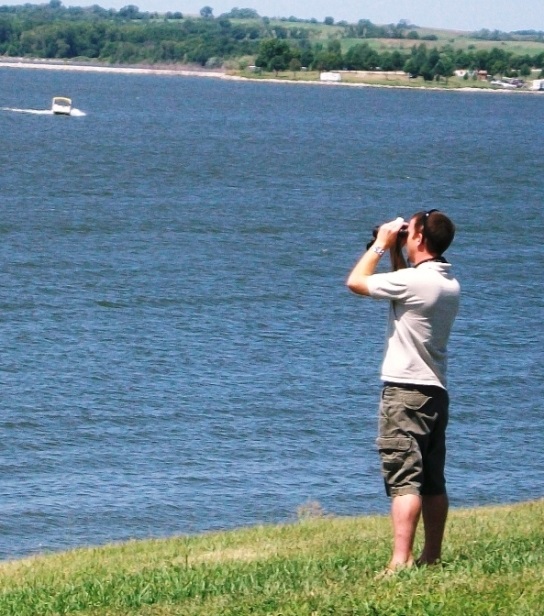
Dustin Martin, doctoral student, will defend his dissertation, "Spatial and Temporal Participation in
Recreational Fishing" at 1 p.m., Nov. 21 in the third floor conference room of the Nebraska Game and Parks Commission building.
Martin's abstract: Buffering inland fisheries against large-scale changes in ecosystem function, climate regimes, and societal-resource valuations requires progressive management approaches that incorporate fish and angler dynamics at large spatial and temporal scales. In this dissertation, I used three techniques to describe angler behavior in a region (19 reservoirs) during a 4-year period. I provided a means to evaluate fishing effort on individual-waterbody and regional scales from posts to an online fishing social network; this would potentially reduce the need for intensive creel surveys.
I used kernel-density estimation to describe the spatial area of influence of reservoirs; differences in area of influence are likely related to access and amenities, fish community, and angler preferences. Finally, network analysis provided a social-ecological perspective to angler behavior and an explicit link between anglers and the reservoirs that they chose to fish.
In combination, these techniques provide natural resource agencies with the tools needed to further fisheries management and ensure the resiliency and sustainability of inland recreational fishing.